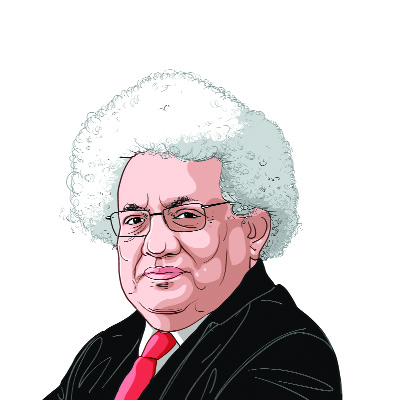Opinion A Tale of Two Parliaments
She had expected to host a lunch and devote a lot of time with her.
When Meira Kumar,the Lok Sabha Speaker came to visit Helene Hayman,the Lord Speaker,her host was in a peculiar predicament. She had expected to host a lunch and devote a lot of time with her. But just as lunch was about to be served,Speaker Hayman had to excuse herself,put on her formal dress,to go and preside over the House of Lords for the final minutes of a session which had started on Monday afternoon at 2.30,gone through the night and was now ending. By the calendar of the House of Lords,it was still Monday. Hayman had to be present at the end,as she was at the beginning. She ended the session and rushed back to the lunch. Of course as lunch finished,Hayman had to rush back because Tuesdays session was about to start at 2.30.
The irony could not have escaped Meira Kumar that while in India the Opposition exerts its power by stopping the Parliament from working,in UK the Opposition makes trouble for the government by working overnight. The House of Lords is a revising chamber which carefully scrutinises any Bill sent to it by the House of Commons (and indeed the Bills which begin life in the Lords ). Every Bill has to go through Second Reading and then a Committee stage then a Report stage and finally Third Reading. At the end,the two Houses have to agree on all the amendments.
Time is of the essence in British Parliaments. The Bill we are debating needs to pass both Houses by February 15. The Opposition in the House of Commons is disciplined by the Speaker who chooses what amendments can be debated and then the discussion can be guillotined. The House of Lords is a self governing institution where the Speaker has no power to curtail the debate. Members can choose to debate each amendment and also put it to vote.
The Bill currently being debated is to hold a referendum on the method of votingFirst past the Post or Alternative Vote. The Liberal Democrats have argued for Proportional Representation for a long time and have won the referendum as their prize for joining the coalition. The referendum date has been fixed for May 5. But a second part of the Bill embodies the Tory plan of reducing the number of seats in House of Commons from 650 to 600. Again this is based on the belief that there is too much variation in the size of constituencies and the Labour Party gets elected from smaller constituencies while the Tories need more votes to get elected.This is clearly a politically charged issue.
The Labour Opposition has introduced scores of amendments and each is being debated at a leisurely pace. The government can see the clock ticking away and days fly by. This is why we now have all night sessions. Members took turns in a rota system to sleep and talk at different times. But as time has gone by,the normally genial House of Lords has become bitter. Filibustering is not allowed in the rules of the House of Lords. Labour members argue that they are not filibustering but then the government thinks otherwise. The ethos of the House of Lords itself is under threat.
What we see is that the Opposition has to use time as a weapon against the majority which is ruling in a democracy. In India,the frustration of the Opposition drives it to prevent the Parliament from working at all. Here in London,we stretch things out and try the patience of the government. In both cases,the ruling coalition complains about bad behaviour of the Opposition and yet what other choices are there? If we all behaved in a civilised way and the majority listened to the minority,politics would be more civilised but duller. The Westminster style of politics is adversarial and majoritarian. Bitter quarrels are often the life blood of a democracy. Dictatorships may get things done but only democracy gives us the feeling that whatever is decided has been done by all of us.





